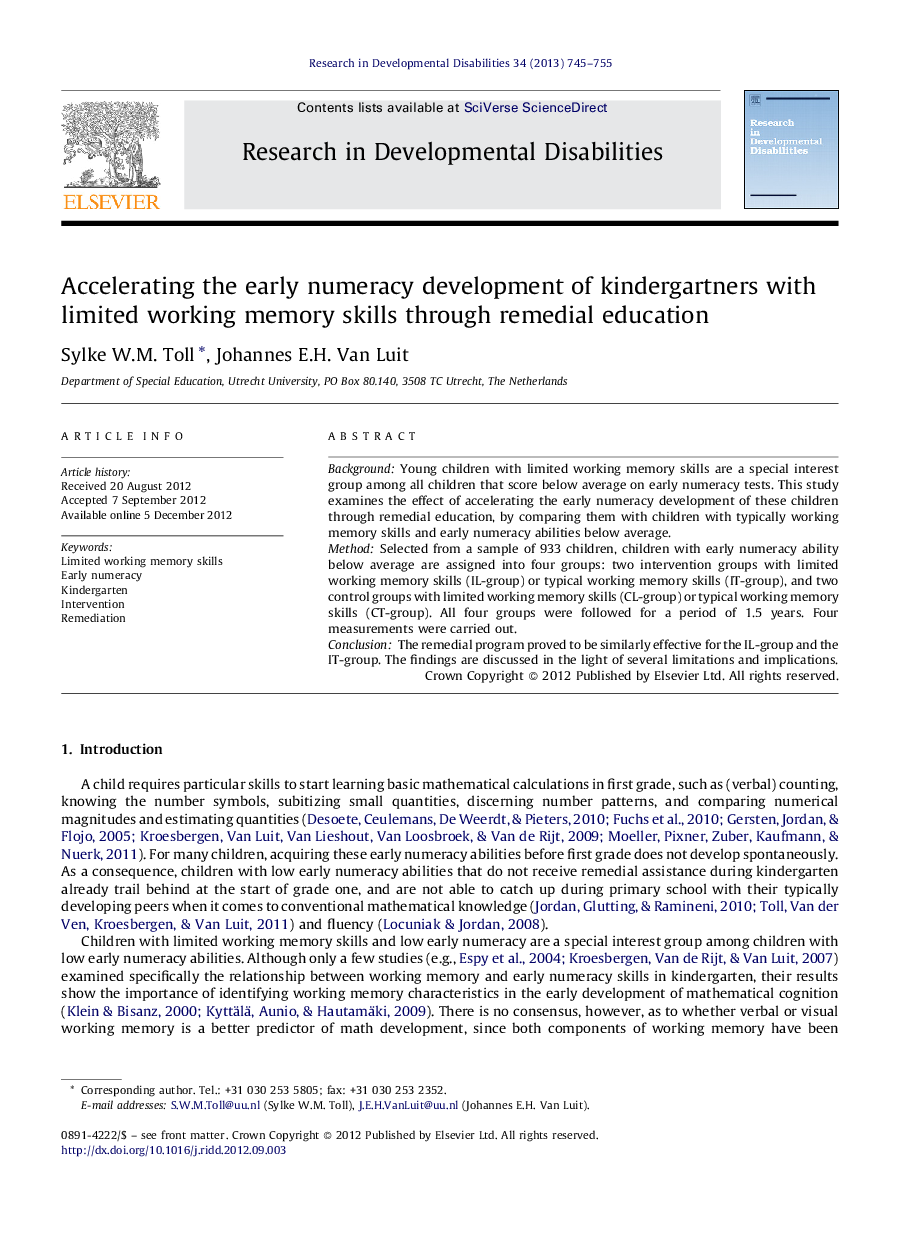| Article ID | Journal | Published Year | Pages | File Type |
|---|---|---|---|---|
| 371519 | Research in Developmental Disabilities | 2013 | 11 Pages |
BackgroundYoung children with limited working memory skills are a special interest group among all children that score below average on early numeracy tests. This study examines the effect of accelerating the early numeracy development of these children through remedial education, by comparing them with children with typically working memory skills and early numeracy abilities below average.MethodSelected from a sample of 933 children, children with early numeracy ability below average are assigned into four groups: two intervention groups with limited working memory skills (IL-group) or typical working memory skills (IT-group), and two control groups with limited working memory skills (CL-group) or typical working memory skills (CT-group). All four groups were followed for a period of 1.5 years. Four measurements were carried out.ConclusionThe remedial program proved to be similarly effective for the IL-group and the IT-group. The findings are discussed in the light of several limitations and implications.
► 933 children were screened for limited working memory (WM) and early numeracy. ► Majority of children with verbal limited WM struggle in visual WM. ► Remedial education influenced early numeracy development of two intervention groups. ► Both intervention groups benefit similar from the offered intervention.
